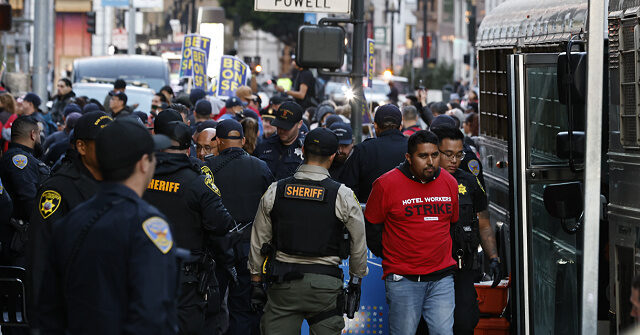The San Francisco Deputy Sheriffs’ Association (SFDSA) has issued a stern warning to local politicians regarding any attempts to defund the police. In a post on social media platform X, the association stated that if any politician moves to reduce their funding or undermine law enforcement capabilities, they will initiate a recall process against that individual. This strong stance reflects the SFDSA’s commitment to representing the approximately 750 deputy sheriffs and senior deputy sheriffs who comprise the majority of the San Francisco Sheriff’s Department. The recent political landscape has been tumultuous, marked by the election of Daniel Lurie, a newcomer to politics, who replaced former mayor London Breed—a figure known for her fluctuating stance on police funding.
London Breed, San Francisco’s first black female mayor, recently lost her reelection in a race that highlighted significant public discourse around law enforcement funding and public safety. Throughout her tenure, she had navigated the complex issues surrounding the call to “defund the police,” ultimately expressing mixed sentiment on the topic. Following her concession to Lurie, who has pledged to enhance public safety and city services, it is clear that the environment for law enforcement in San Francisco may undergo considerable change. Lurie, a founder of the Tipping Point Community, aims to address urgent social needs but faces challenges amidst rising crime rates and community safety concerns exacerbated by the pandemic.
The COVID-19 pandemic profoundly impacted San Francisco, shaking its reputation as a technology hub. The shift to remote work left a mark on the economy and the community’s social fabric. As the city grappled with the repercussions of the pandemic, property crime rates soared, and the city witnessed a troubling surge in fentanyl-related deaths—averaging two fatalities per day. The increase in homelessness was also pronounced, with numerous encampments emerging, posing further challenges for local law enforcement and community services. Public response times to crimes increased, adding to residents’ unease, and the prolonged closure of public schools contributed to a sense of instability within the community.
Compounding the situation is the public’s growing dissatisfaction with law enforcement’s response to crime. This sentiment has manifested politically, as statewide trends indicate a rightward shift among California residents. Recent elections saw significant votes in favor of propositions targeting drug use and theft, most notably Proposition 36. This measure allows felony charges for possessing certain drugs and increases sentences for thefts under $950 for individuals with prior drug or theft convictions. The passing of such measures signals a changing attitude toward public safety in California and reflects a demand for a more robust law enforcement framework.
The SFDSA’s declaration can be seen as a proactive measure to safeguard funding and support for law enforcement in the face of these shifting sentiments. Their commitment to pursuing recalls against politicians who threaten funding underscores the importance the association places on maintaining resources for their operations and personnel. As the new administration takes office, the balance between community safety and the evolving social landscape remains at the forefront of discussions around policing in San Francisco, as well as the broader implications for other cities grappling with similar issues.
In conclusion, the interplay between political leadership, public safety, and law enforcement funding is reaching a critical juncture in San Francisco. With the departure of Mayor Breed and the introduction of Daniel Lurie as the new mayor, how the city navigates these complex issues will be closely watched. The SFDSA’s warning reflects the heightened tensions surrounding the expectations placed on law enforcement amid rising crime rates and community concerns about safety. As San Francisco looks to the future, the implications of recent elections and public sentiment on policing will undoubtedly shape the policy landscape, ultimately impacting both the residents and law enforcement officials responsible for maintaining order and safety in the city.

